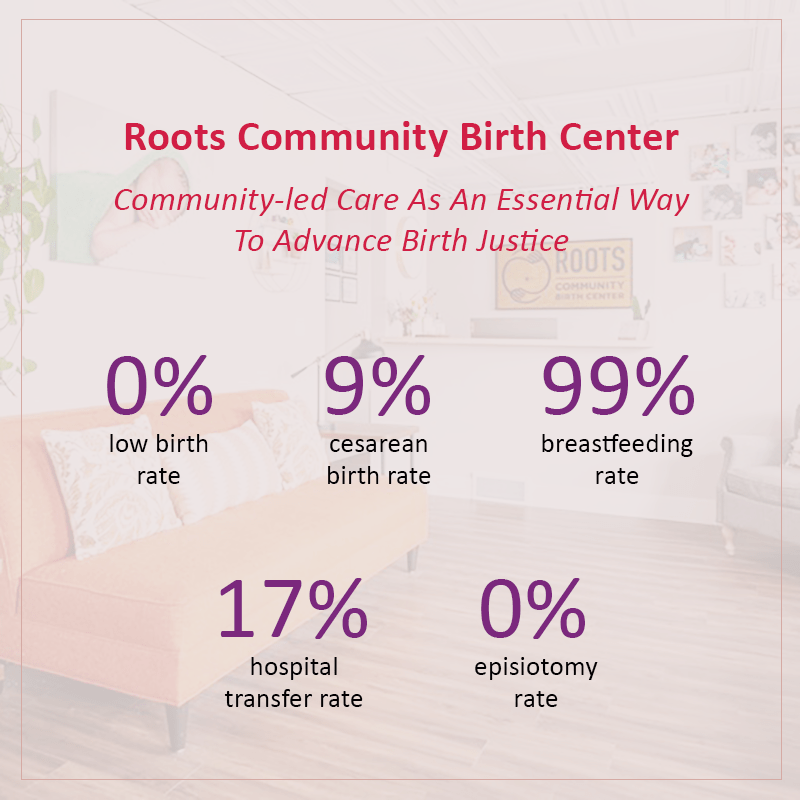
The Roots Community Birth Center demonstrates the exceptional value of community-based and -led forms of the birth center model for communities disadvantaged by structural racism, intergenerational underinvestment, and other forms of discrimination. Roots enables childbearing families in the predominantly Black neighborhood of North Minneapolis, Minn., to experience midwifery-led care that is accessible, respectful, trusted, and relationship-based.
Most of the diverse clients at Roots also receive culturally congruent care. According to the midwives, student midwives, and doulas serving Roots clients, culturally congruent care recognizes that the cultural identity of birthing people is a core part of the clinical encounter, incorporates a commitment to racial justice, and is grounded in the birthing person’s agency and birth worker’s cultural humility. Incorporating a critical race lens into this relationship-based model has the potential to mitigate pernicious effects of racism on Roots clients.
The Roots care model prioritizes education, informed choice, prevention, and personalization. Compared to typical prenatal care, prenatal visits at Roots begin earlier in the pregnancy, occur more frequently, and last longer. Labor and birth practices support the innate capabilities of the birthing person and fetus/newborn for labor, birth, and adaptation after birth. Roots clients experience at least six home and clinic postpartum visits, far more than typical postpartum care.
The neighborhood served by Roots experiences disproportionately adverse maternal and newborn outcomes. However, Roots’ 2020 outcomes were exceptional despite happening in the middle of the COVID-19 pandemic and at the epicenter of the racist trauma unleashed by George Floyd’s murder. They include:
- 0 percent low birth weight rate
- 9 percent cesarean birth rate (compared to 32 percent nationally)
- 0 percent episiotomy rate
- 99 percent breastfeeding rate at six months (compared to 58 percent nationally)
- 17 percent hospital transfer rate, with 97 percent of these for such non-emergency issues as prolonged labor and desire for pain medications
For comparison with the Roots experience of no clients with low birth weight or episiotomy, the national low birth weight rate in 2019 was 8 percent, rising to 14 percent among Black women, and hospitals reported an average episiotomy rate of 5 percent to the Leapfrog Group in 2020. Investigators compared experiences of Roots clients to a general sample of birth center clients from across the country, and found that both clients of color and white clients at Roots had higher scores on validated tools measuring autonomy and respect than the general sample.
In addition to powerful holistic health benefits, Roots contributes to community development by employing and training community members and others from racially and ethnically diverse backgrounds. All employees must have a deep understanding of structural racism and culturally centered care, and a commitment to equity and anti-oppression. Continuing education further builds these skills and knowledge. Staff midwives are highly motivated to provide racially concordant and physically and emotionally safe care, and to bring racial justice to their work.
Unfortunately, current payment systems do not adequately pay for this highly effective, labor-intensive model of care. Payments by Medicaid, the predominant payer of Roots clients, are especially low.
Back to Improving Our Maternity Care Now Through Community Birth Settings

